Meeting the Iranian Foreign Minister in Cairo
Meeting the Iranian Foreign Minister in Cairo
By Mohamed Sabreen, from Cairo / Egypt
Amid a warm atmosphere, the Iran Foreign Minister Abbas Araqchi came to Naguib Mahfouz Restaurant for dinner on Monday evening, before leaving for Lebanon the next day. Remarkably, three senior statesmen came to meet with Araghchi: Amr Moussa, former Secretary-General of the Arab League, and former Foreign Ministers Mohamed El-Orabi and Nabil Fahmy, in addition to Dr. Ali Abu Shadi, former chief inspector at the International Atomic Energy Agency.
Together with the Iranian ambassador to Egypt, I also took part in the meeting that took more than an hour, with a deep but friendly discussion. Talks reflected the extent of the development of relations between Cairo and Tehran.
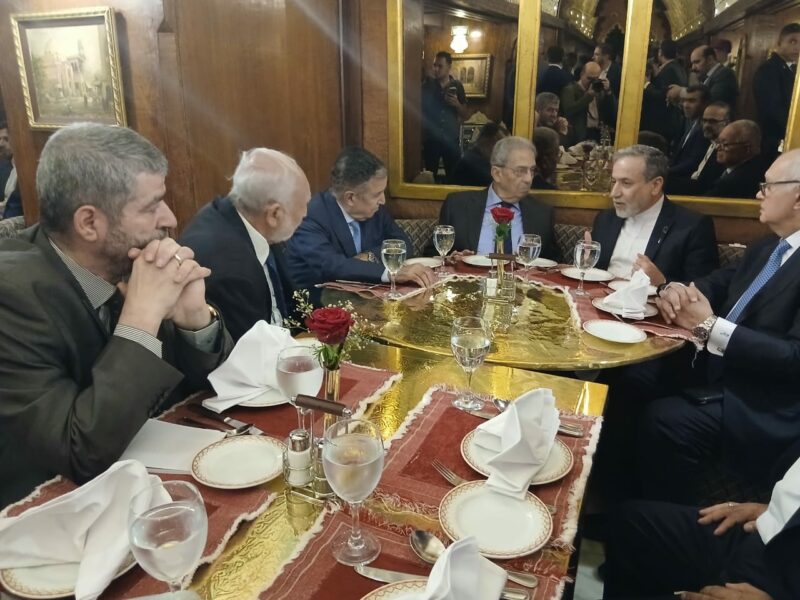
The “nuclear file”
It was clear that the “nuclear file” was the main concern. I joked with Ambassador Soltani, telling him that it was a very successful visit, and I could see it in the beaming expression on his face. He agreed. and said that this is the first visit by the Iranian Foreign Minister at the invitation of the Egyptian Foreign Minister and is linked to the course of bilateral relations.
For his part, Ambassador Soltani Fard affirmed, “The path to improving relations between the two brotherly countries, Egypt and Iran, is now more paved than ever.” He happily said, “Iranian Foreign Minister Dr. Abbas Araghchi’s visit to Egypt was extremely successful at a very important and sensitive time.”
He added with a smile that the two ministers, Araghchi and Abdel Ati, were in daily contact. I joked, “In this case, there’s no need for ambassadors or journalists.”
Through the dialogue with the three ministers, Abu Shadi, myself, with Mr.Araghchi, I can confirm that it was a pivotal visit, and that the restoration of relations is now a matter of time.
A new phase
At the outset, Araghchi began by saying, “I am happy to be in Cairo again. I had very important meetings with His Excellency President Abdel Fattah el-Sisi and His Excellency Foreign Minister Badr Abdel Ati. After many years, diplomacy between Iran and Egypt has entered a new phase. The level of political interaction and cooperation, and more importantly, the level of trust and confidence in relations between the two countries, is unprecedented.” He paused for a moment to add in his soft voice and shy smile, “Iran and Egypt share a shared responsibility in maintaining peace, stability, and tranquility in the region, as they are two influential powers in the region, with a rich culture and civilization.”
Iran rejects nuclear weapons
Araghchi stated that Egypt and Iran are determined to enhance political and economic cooperation, and that both sides agree on the importance of continuing the current path to explore prospects for joint development of relations between the two countries.
On the other hand, he explained that his country rejects nuclear weapons and does not seek to possess them, pointing out that there is a religious fatwa prohibiting the possession and use of nuclear weapons.
Europeans’ pressure
He complained that the Europeans are pressuring the IAEA, and that this pressure was behind the issuance of the report, which states that Iran previously conducted undeclared nuclear activities using nuclear materials at three sites that are still under investigation, in addition to other potential sites, as part of what the report described as an “organized, undeclared nuclear program” that continued until the early 2000s.
The report indicated that Iran increased its production of enriched uranium by 60%, indicating that its stockpile of such material has reached approximately 409 kilograms—an increase of approximately 49% since the February report. This amount is sufficient to manufacture a nuclear weapon if enriched to 90%.
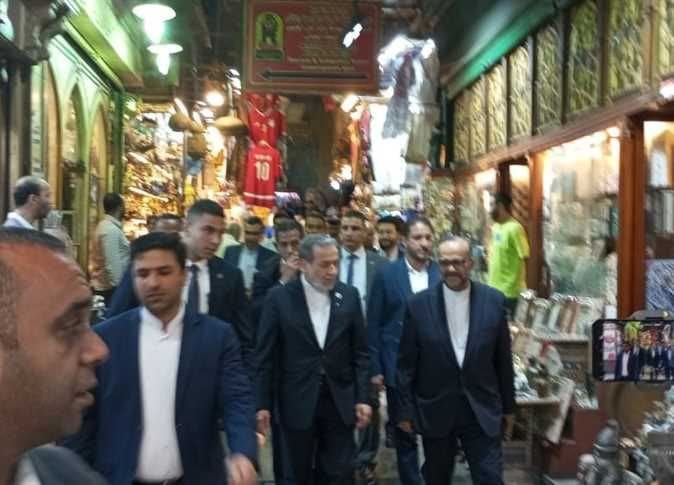
Frustration of Israel
He expressed his frustration, accusing the agency of succumbing to political pressure and promoting old allegations based on information from Israel.
Araghchi said in a low voice that reaching an agreement is possible if the goal is to reach an agreement, but if the goal of the nuclear negotiations is to deprive Iran of its peaceful activities, an agreement will not be possible.
He emphasized that Tehran cannot abandon uranium enrichment, and that Tehran will continue negotiations until its interests are secured and that it has nothing to hide. He indicated that “diplomacy is the solution.”
He explained that Iran will respond to the new American nuclear proposal soon.
A significant discussion took place regarding the goal of freeing the region of weapons of mass destruction and the need for coordination among the countries of the region. I suggested to Minister Araghchi that Egypt and Iran coordinate with other Arab countries on the nuclear issue, linking it to the Israeli nuclear issue, turning the tables on the West, and emphasizing the rejection of the existence of two standards, one for the world and the other for the rest of the world. I called on Tehran to take initiatives toward neighboring countries. Instead of Iran being a pretext for Western fears, regional countries and Iran should join forces for regional stability.
A de-escalation
On the other hand, it was clear that Tehran and Cairo were working to reach a de-escalation, and that Egypt had entered the front line regarding the Iranian nuclear issue and was playing a major role in resolving tensions between Iran and the IAEA.
Although no one said it, the presence of the IAEA Director General suggests that Egypt is acting as a kind of mediator between Iran and the IAEA, bringing viewpoints closer together through diplomatic and political efforts and coordination to reduce regional tensions on several issues.
Final agreement
On the other hand, former Iranian diplomat Kourosh Ahmadi noted that the past few days have witnessed two important developments in the negotiations between Iran and the United States. One was Washington’s submission of a written proposal for a final agreement, and the other was the International Atomic Energy Agency (IAEA) and some Western countries moving toward international escalation against Iran.
In an article in the reformist newspaper Shargh, the author added that the American proposal, conveyed via the Sultanate of Oman, likely included a gradual offer beginning with reducing uranium enrichment to 3.67% in exchange for a partial lifting of oil sanctions. This would then lead to a permanent halt to any enrichment above this limit, leading to the voluntary implementation of the Additional Protocol, the lifting of the trigger mechanism, and the ratification of the agreement by Congress. This would be in exchange for the transfer of the entire stockpile of highly enriched uranium abroad.
A complete suspension
Ahmadi continued that the American proposals may also stipulate a complete suspension of enrichment within Iran, with enrichment equipment being shipped abroad to a foreign consortium, along with the possibility of implementing a strict oversight regime beyond the IAEA’s mandate, in exchange for Iran’s integration into the global economy and the complete lifting of sanctions.
The author stated that this proposal was presented outside the framework of the official negotiating round, and Iran has yet to announce a clear position on it for several days. The date for the sixth round of talks has also not yet been set, indicating the potential impact of the IAEA Board of Governors meeting in June on determining the timetable for negotiations.
Ahmadi warned that the IAEA’s recent reports, including a quarterly report and a technical report, were exploited by three European countries and the United States to draft a resolution against Iran. This resolution is likely to include accusations of lack of full cooperation with the agency, express concern about the accumulation of highly enriched uranium, and call on Iran to be transparent and cooperative.
Additional sanctions
According to informed Iranian sources, such a resolution could lead to an escalation of Iranian action against inspection activities, opening the door to additional sanctions or even referring the issue back to the Security Council. They noted that referral to the Council is not new in the context of the Iranian nuclear issue, but it could be used as a political tool by European countries to strengthen the legal basis for reactivating the trigger mechanism.
A new phase of escalation
The sources concluded that what is happening now does not reflect a move toward a comprehensive solution, but rather a Western attempt to strengthen leverage and pave the way for a new phase of organized escalation if Iran does not take tangible preemptive or negotiating steps.
Regional mediator
For his part, Major General Mohamed Abdel Wahid revealed that “Egypt’s goal in inviting Araghchi to visit is to strengthen relations with Iran, particularly bilateral relations in all fields. It also seeks to enhance its role as an effective regional mediator on various issues, as Cairo desires to create a balance of power in the Middle East, as it is not in the region’s interest for a regional war to erupt.” He explained that “Egypt, despite its keenness to strengthen relations with Iran, will do so with caution, moving away from full diplomatic representation at this stage. However, it does not object to cooperation in other political and economic fields, as well as cooperation on regional issues such as the Gaza war, the events in Lebanon, and Israel’s ambitions in Syria. Cairo is also signaling its support for diplomatic solutions to the Iranian nuclear issue, and Araghchi will, of course, inform the Egyptian president of developments in the indirect negotiations with the United States, mediated by Oman.”
A message to America and Israel
According to Abdel Wahid, “By inviting this visit, Egypt wants to send a message to the United States, along with Israel, that it has independent decision-making and relations with Iran in accordance with its interests and the requirements of the region. The visit will discuss maritime security in the Red Sea, from which Egypt has been greatly harmed, and ways for Tehran to pressure the Houthis in Yemen to stop targeting ships.” Egypt has estimated its losses from the decline in Suez Canal revenues last year at more than $7 billion (one dollar equals 49.7 Egyptian pounds in Egyptian banks), amid hopes of recovering some of these losses this year, especially after the Sultanate of Oman recently announced “reaching a ceasefire agreement between the United States and the Yemeni Houthi group,” which would guarantee freedom of navigation and the smooth flow of international commercial shipping. However, the Yemeni group denied that the agreement included Israeli ships.
Egypt’s pivotal role
On the other hand, Iranian affairs expert Saeed Shawardi believes that “Iran has always paid attention to Egypt’s pivotal role in the Arab and Islamic world in all matters pertaining to the region and has an official and popular desire to restore diplomatic relations with Cairo. Tehran believes that the rift that occurred in the past between the two countries is over. Currently, circumstances and equations have changed, and there is an urgent need for concerted efforts, especially with a pivotal state like Egypt, to resolve the hot issues in the region, most notably the Palestinian issue.”
On the other hand, some experts believe that America has no interest in resorting to a military solution to resolve the dispute with Iran over its nuclear program, and that the use of force in the Middle East brings to mind costly experiences, regardless of the reasons. At the same time, President Donald Trump himself does not consider the military option an acceptable option unless all avenues to persuading Tehran to abandon its nuclear dream are blocked. Iran responds that such a dream does not exist and that it is religiously forbidden. Despite these repeated denials from Tehran, the Iranian nuclear issue has returned to the forefront.
A matter of time
During my visit to Baghdad, an Iraqi source revealed to me that “there is a deep debate within the Iranian National Security Council regarding the negotiations on the nuclear issue and the general situation in Iran.”
The Iraqi source said that there are three trends within Iran: the first does not want negotiations (the conservatives), the second question what we are negotiating about (the centrist conservatives), and the third wants negotiations (the reformists). The one who settled the debate was Supreme Leader Ali Khamenei. At the end of a long conversation, he told me, “It is not easy for the regime to survive due to internal variables.”
In the end, such talk has been circulating for decades.
However, it is likely that the restoration of relations between Cairo and Tehran is only a matter of time.
Cover graphic: UWI expert M.Sabreen with Iranian FM Abbas Aragchi in Cairo







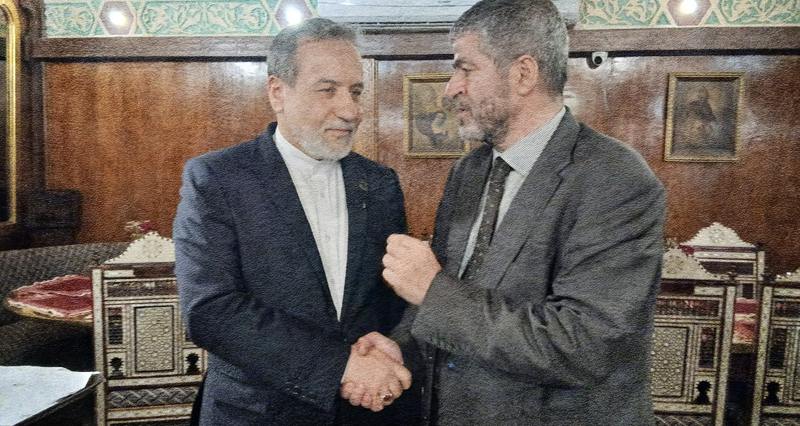
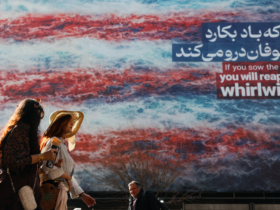
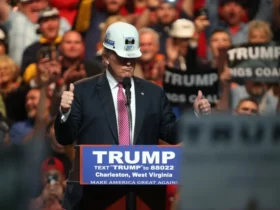
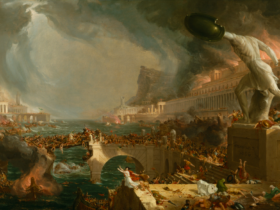
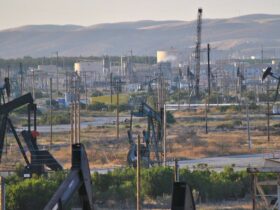
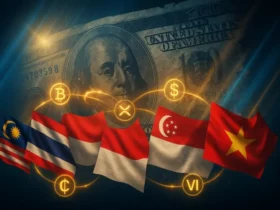
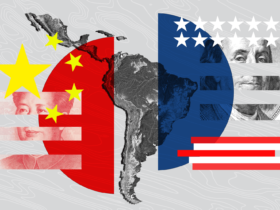



Leave a Reply